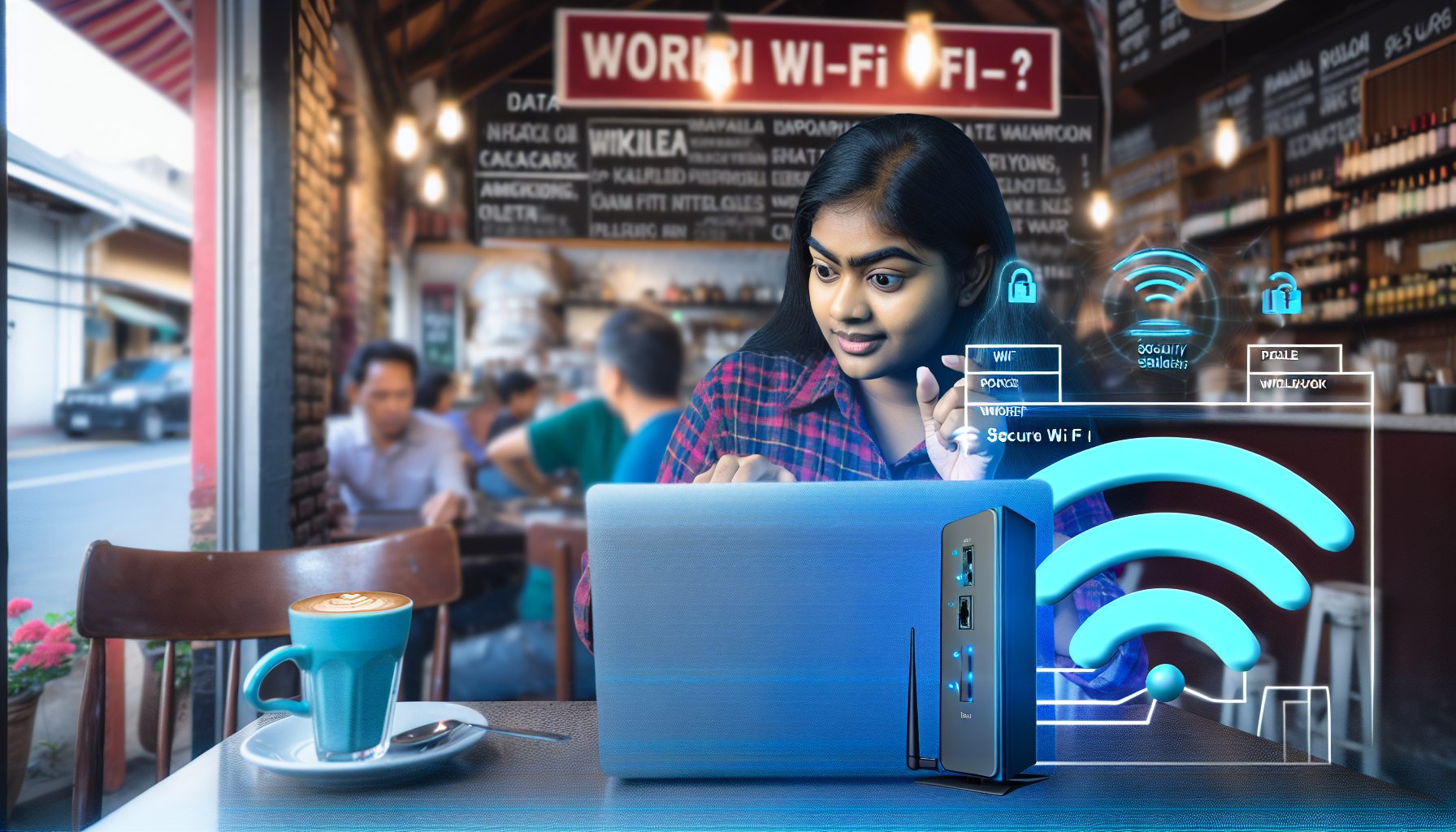How to Set Up a Secure Wi-Fi Network While Traveling
Imagine you’re sitting on a picturesque beach in Bali, sipping on a coconut, and just about to dive into an important virtual meeting. But wait – is your Wi-Fi connection actually secure? As a digital nomad, traveling with a dependable and secure Wi-Fi network is like packing your sunscreen – it’s a must. Setting up a secure network might sound daunting, especially abroad, but it’s easier than it seems.
Securing your network is crucial not just for seamless connectivity but for protecting your sensitive information from cyber threats. Let’s dive into how you can set up a secure Wi-Fi network while globe-trotting.
Key Takeaways:
- Use a reliable Virtual Private Network (VPN)
- Configure your travel router for added security
- Update firmware and software regularly
- Be cautious about public Wi-Fi networks
- Utilize strong passwords and multi-factor authentication
Use a Reliable Virtual Private Network (VPN)
VPNs aren’t just for the tech-savvy; they are your first line of defense. A VPN encrypts your internet connection, making it nearly impossible for hackers to intercept your data. Trustworthy VPN services like ExpressVPN or NordVPN provide robust security and efficient speed, essential for work-related tasks.
“VPNs create a secure ‘tunnel’ for your data, making the internet a much safer place,” advises cybersecurity expert John Doe.
Configure Your Travel Router for Added Security
A portable travel router is a game-changer for digital nomads. Not only does it boost your Wi-Fi signal, but it also adds an extra layer of security. Most travel routers allow you to create a private network, even when connected to public Wi-Fi. Ensure you change the default SSID (network name) and password to unique ones.
Update Firmware and Software Regularly
Outdated software can leave you vulnerable to cyber attacks. Always make it a priority to update your device’s firmware and software. This includes your travel router and any gadgets you use to access the internet. Manufacturers frequently release updates to patch security vulnerabilities.
Be Cautious About Public Wi-Fi Networks
Those open Wi-Fi networks at cafes or airports are convenient but also risky. Always check if the network is legitimate and avoid performing sensitive tasks, like banking, over public connections. It’s wise to use your mobile data or hotspot whenever possible.
“Public Wi-Fi is a breeding ground for cybercriminals looking to steal your data,” warns Jane Smith, an IT security specialist.
Utilize Strong Passwords and Multi-Factor Authentication
Strong, unique passwords for your Wi-Fi and online accounts are non-negotiable. Use a password manager if you find it hard to keep track. Coupling this with multi-factor authentication (MFA) significantly boosts your security. MFA adds another layer of verification, making it harder for unauthorized users to access your information.
A Handy Comparison Table
| Security Measure | Description | Recommended Resources |
|---|---|---|
| VPN | Encrypts internet connection, secures data | ExpressVPN, NordVPN |
| Travel Router | Creates a private network, enhances security | TP-Link N300, GL.iNet GL-AR750 |
| Firmware Updates | Patches security vulnerabilities | Device manufacturer websites |
| Public Wi-Fi Caution | Avoid sensitive tasks on public networks | Use mobile data as alternative |
| Strong Passwords & MFA | Enhances account and network security | LastPass, Google Authenticator |
Living or Experiential Tips
-
Test Before You Travel: Set up your travel router and VPN at home to troubleshoot any issues beforehand.
-
Frequent Password Changes: Regularly update your passwords, especially if you use public networks often.
-
Data Backup: Always back up important data before traveling. Use cloud storage like Google Drive or Dropbox for easy access and extra security.
- Portable Battery Packs: Keep your devices powered up with a portable battery pack. No power means no VPN or secured router.
Being diligent with your device security means you can work from anywhere without stress. Setting up these systems may take a bit of time initially, but the peace of mind is worth every second.
In a world where our lives are increasingly digital, taking steps to protect our online presence while traveling is more important than ever. By using reliable VPNs, configuring travel routers, staying updated on software, being wary of public Wi-Fi, and utilizing strong passwords and MFA, you can ensure a secure and seamless digital nomad experience.
For further resources on securing your Wi-Fi network, consider checking out:
- National Cyber Security Centre
- Consumer Reports on VPNs
- Cybersecurity & Infrastructure Security Agency
FAQ
Q: What’s the best VPN for remote work?
A: Popular VPNs like ExpressVPN and NordVPN are highly recommended for their strong encryption and fast connection speeds.
Q: Can I rely on public Wi-Fi networks?
A: While convenient, public Wi-Fi networks are generally not secure. It’s better to use a VPN if you have to connect or use your own mobile data.
Q: How can I create strong passwords?
A: Use a mix of letters, numbers, and symbols. A password manager can help generate and store complex passwords for you.
Embark on your digital nomad journey with confidence, knowing your Wi-Fi network is secured and your data protected.
